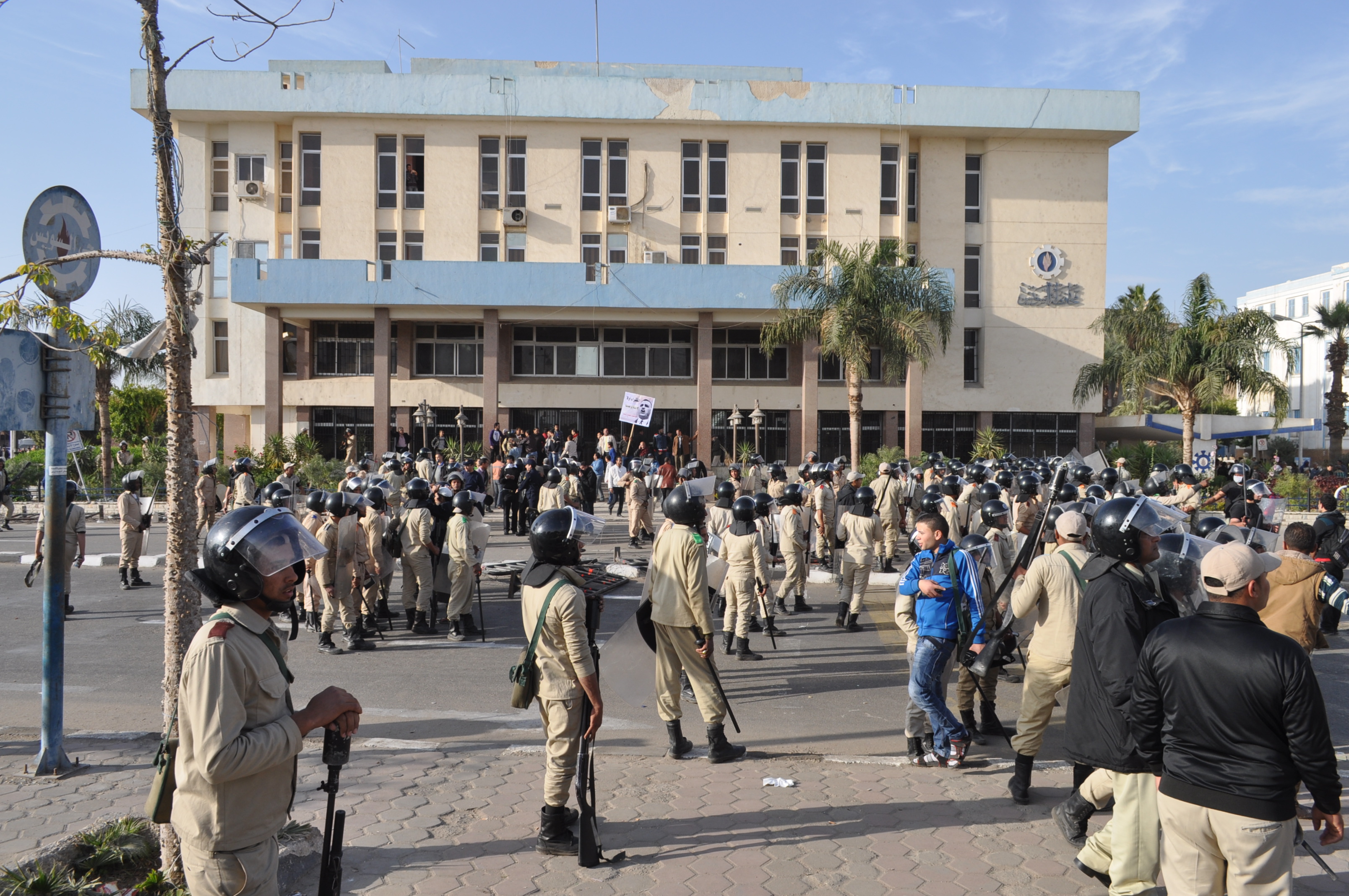
(AFP PHOTO / STR)
Judge Nagy Shehata refused to look into a letter from human rights organisations calling for the release of Egyptian-American activist Mohamed Soltan on grounds of ill health, calling it “interference with the judiciary”, according to a Wednesday statement by El-Nadeem Center, which supports victims of violence and torture.
Soltan, son of the prominent Muslim Brotherhood leader Salah Soltan, has been detained for 437 days – 284 of them on hunger strike.
Soltan is one of 52 defendants charged with “forming an operations room to direct the terrorist Muslim Brotherhood group to defy the government during the Rabaa [Al-Adaweya] sit-in dispersal and to spread chaos in the country”, according to a statement released by the prosecutor general’s office on 3 February.
The judge postponed the trial to 16 November and ordered the authorities to present Soltan’s medical report, as well as where he is currently being detained.
The trial includes Mohammed Soltan and the Muslim Brotherhood’s Supreme Guide Mohammed Badie.
“There is a high possibility of [Soltan’s] death if he has a fourth lung stroke,” said the letter signed by human rights organisations, according to El-Nadeem.
Soltan was transferred to the intensive care three times and has had two strokes during his detention, stated the letter.
Soltan is suffering from systemic lupus erythematosus (SLE), an autoimmune disease which can cause strokes and damage vital organs.
Police forces were originally looking for his father, and when he did not find him they arrested Mohamed and two of his friends who were visiting him, said the letter.”Soltan’s body may never return to as it was before, given the length of his strike. Recovery will require a long period of time under close medical care and regular follow-ups,” said the letter to the judge.
Soltan was not present during the trial, as he fell into a sugar coma on Sunday.
Lawyers Maha Youssef and Halim Henish presented the letter to judge Shehata.
Organisations who signed the letter include the Egyptian Initiative for Personal Rights (EIPR), the Association for Freedom of Thought and Expression (AFTE), the Arabic Network for Human Rights Information (ANHRI), the Egyptian Center for Economic and Social Rights (ECESR), and the Cairo Institute for Human Rights Studies (CIHRS).


